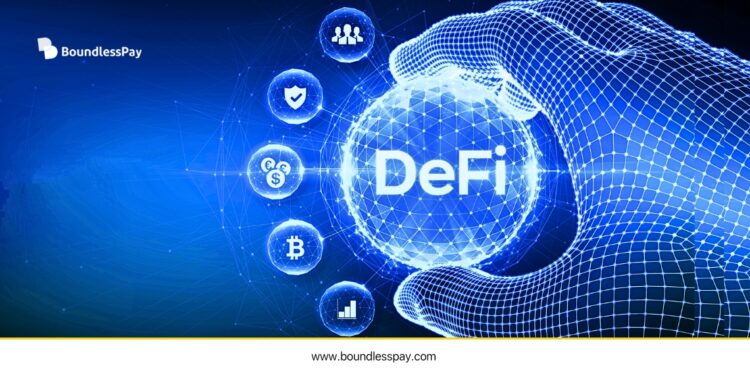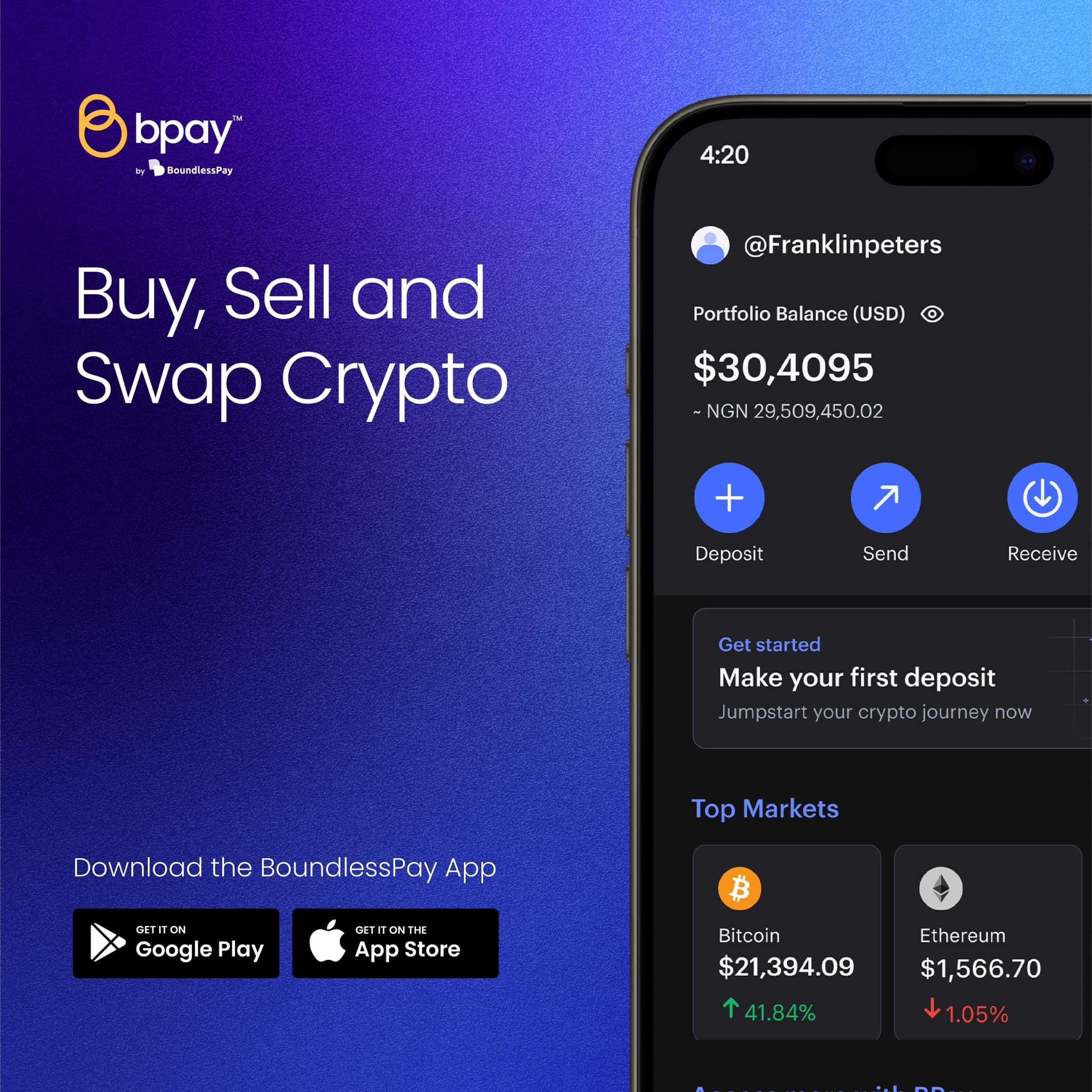In the fast-changing environment of financial technology, Decentralized Finance, also known as DeFi, is beginning to assume a prominent position.
The size of the worldwide decentralized finance industry has grown significantly. The size of the global decentralized finance market was estimated at $13.61 billion in 2022, and it is projected to rise at a compound annual growth rate (CAGR) of 46.0% from 2023 to 2030.
Born from the revolutionary Bitcoin, DeFi has swiftly grown into a transformative force that challenges traditional financial systems. But what does this rise of DeFi really mean for you?
Understanding The DeFi Revolution
Think about a world with a financial environment in which banks, financial institutions, and middlemen are no longer solely responsible for facilitating financial transactions and services. This is the kind of world that decentralized finance (DeFi) seeks to build.
DeFi is fundamentally a shift toward decentralized networks supported by smart contracts and blockchain technology. DeFi offers people the ability to handle their financial affairs directly, in a peer-to-peer manner, in contrast to traditional financial systems that are governed by a single entity.
What Are Some Advantages of DeFi?
The major reason that decentralized finance has seen so much acceptance and growth is because of the unique advantages it offers. Below are some of the advantages DeFi provides;
-
Accessibility and Freedom
DeFi platforms are accessible to anyone with an internet connection. This means you can lend, borrow, trade, and invest in a global financial ecosystem from the comfort of your home.
-
Reduced Fees and Increased Returns
By cutting out intermediaries, DeFi significantly reduces transaction fees, providing you with more value for your money. Moreover, DeFi offers opportunities for higher returns, as you can lend your assets to others in exchange for interest.
-
Security and Privacy
Your financial data is often centralized in traditional systems, making it vulnerable to breaches and hacks. DeFi’s decentralized nature means your data is stored across various locations, reducing the risk of a single point of failure.
-
Personal Control
DeFi gives you full control over your financial activities. You hold your assets in your personal wallet, and smart contracts dictate the terms of transactions, removing the need for third-party approvals.
-
Global Transactions
With DeFi, geographical barriers are eliminated. You can transact with anyone from anywhere in the world, without the limitations of traditional financial systems.
Some Common DeFi Use Cases
-
Lending and Borrowing
DeFi platforms allow you to lend your assets to others and earn interest, or borrow assets by providing collateral. Anyone can use this peer-to-peer lending concept, no matter where they are.
-
Stablecoins
Stablecoins are cryptocurrencies that stay at the same value. They offer stability in the unpredictable crypto market and facilitate commerce and trading on DeFi platforms.
-
Yield Farming
Yield farming involves participating in liquidity pools to earn interest. By providing liquidity to DeFi platforms, you can earn returns on your crypto holdings.
-
Decentralized Exchanges
You can trade digital assets directly using DEXs rather than a centralized exchange. This decreases the need for middlemen while simultaneously improving security and privacy.
The Future of Decentralized Finance
Decentralized financial growth is more than just a Trend; it marks a key moment in the financial industry’s evolution. Despite the progress DeFi has already made, there is still room for more growth. Highlighted below are areas you should look out for in order not to be left out in the ever-evolving DeFi sector.
- Mainstream Adoption: While DeFi has gained traction within the crypto community, its adoption in the mainstream financial world is still in its infancy. As the user experience becomes more intuitive and user-friendly, more people are likely to embrace the convenience and benefits of DeFi.
- Regulation and Compliance: DeFi’s decentralized nature presents a challenge for regulators. How do you regulate a financial system that operates beyond borders and intermediaries? As governments and regulatory bodies grapple with these questions, it’s likely that DeFi will see a mix of regulation and self-governance.
- Interoperability and Scalability: Different DeFi projects often operate on separate blockchains, limiting their interoperability. As the industry matures, efforts to create interoperable solutions and improve blockchain scalability will drive innovation and collaboration across various projects.
- Risk Management and Security: While DeFi promises enhanced security through decentralization, it’s not without risks. Smart contract vulnerabilities, hacks, and potential exploits are challenges that the industry must address. Solutions to enhance security and risk management will be essential for sustainable growth.
- Financial Inclusion: One of DeFi’s most powerful promises is its potential to bring financial services to the unbanked and underbanked populations worldwide. As DeFi protocols become more accessible and user-friendly, they could serve as a bridge to financial inclusion for millions of people.
Navigating the DeFi Landscape
As you consider diving into the world of DeFi, it’s important to approach it with a blend of curiosity and caution. Here are a few tips to help you navigate the DeFi landscape:
1. Educate Yourself
DeFi can be complex, so take the time to understand the concepts, technologies, and projects you’re interested in. Learning about blockchain, smart contracts, and various DeFi platforms will empower you to make informed decisions.
2. Start Small
Begin with small investments and experiments to get a feel for how different DeFi platforms work. Familiarize yourself with the user interface, fees, and processes before committing larger sums.
3. Choose Trusted Platforms:
Stick to reputable and well-established DeFi platforms. Research their track record, security measures, and community feedback to gauge their credibility.
4. Security First:
Protect your private keys and use secure hardware wallets when possible. Be cautious of phishing scams and always verify the authenticity of platforms before sharing your sensitive information.
5. Diversify Your Portfolio
Just as in traditional finance, diversification is key. Avoid putting all your assets into a single DeFi platform or project. Spread your investments across different protocols to minimize risk.
Final Thoughts
In addition to being a technological advancement, the rise of decentralized finance offers you the potential to regain control over your financial future. The power to manage, trade, and invest your assets directly is now at your fingertips.
As DeFi paves the way for a more inclusive, accessible, and transparent financial future, the question isn’t whether you should join the movement, but how you can best navigate this exciting new era of financial empowerment.




















